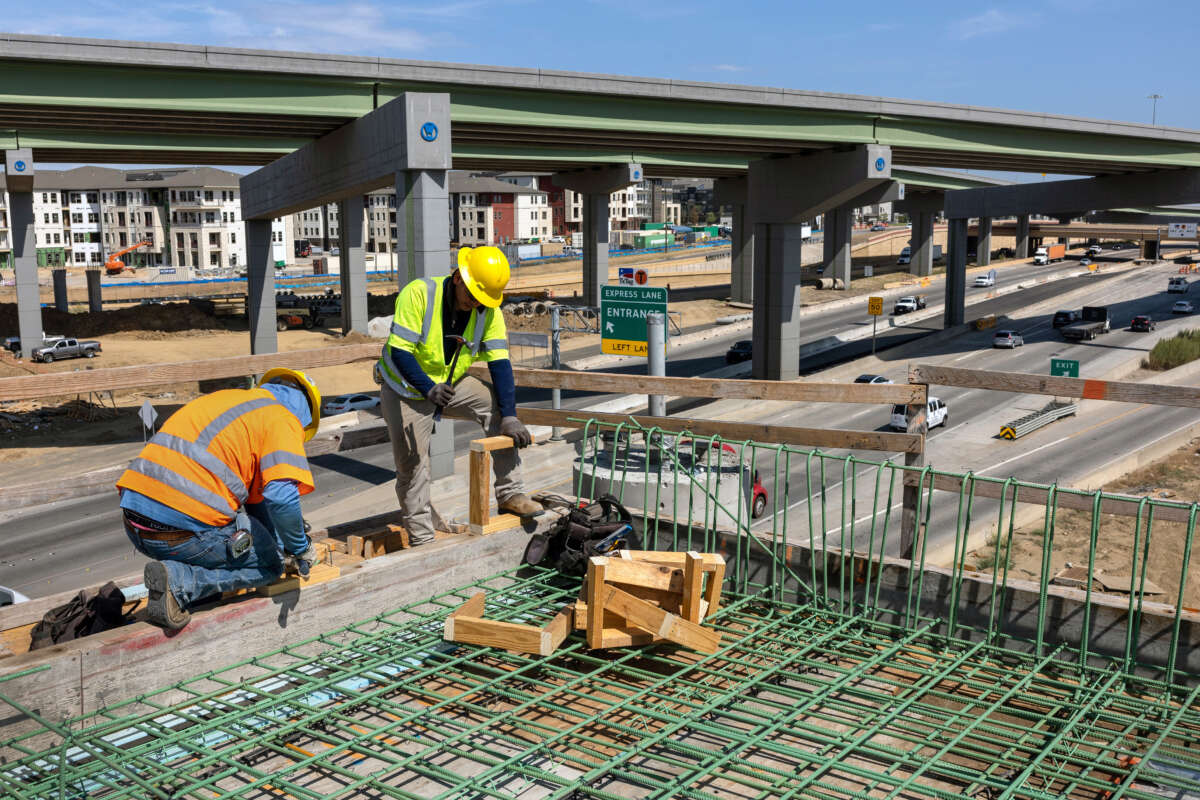Honest, paywall-free news is rare. Please support our boldly independent journalism with a donation of any size.
Far right Gov. Greg Abbott (R) signed a bill last week that nullifies local laws mandating water and heat breaks for construction workers as work-related heat deaths in Texas are rising and temperatures are hitting record highs.
The provision is part of a bill called the “Death Star bill” by its opponents, which nullifies a host of local regulations that enact additional protections for workers, among other things. The part addressing construction workers would bar cities and counties from passing new regulations and overturns current regulations that mandate water breaks for certain workers.
Cities like Austin and Dallas have laws ensuring that construction workers are provided a 10-minute break every four hours to drink water and get out of the sun. This bill would overturn that requirement.
The law comes as heat-related deaths at work are expected to worsen due to the climate crisis. Indeed, in the days following the bill’s signing by Abbott, a record heat wave hit large swaths of the state, threatening the state’s power grid. In some places, the heat index topped 120 degrees. Other places broke heat records; Austin set the all time record for heat in the month of June, while Junction, west of Austin, hit its all-time high of 110 degrees.
Texas is already the worst state in the country for worker deaths due to high heat, according to the Texas Tribune. At least 42 workers died from heat exposure in the state between 2011 and 2021, Bureau of Labor Statistics data shows — and workers say this doesn’t encompass all heat-related deaths since they are often attributed to something other than the heat.
Heat-related deaths will certainly rise as a consequence of the new law, unions have said. The Occupational Safety and Health Administration (OSHA) recommends that outdoor workers drink eight ounces of water every 20 minutes when working in the heat to prevent heat-related illness.
“Construction is a deadly industry. Whatever the minimum protection is, it can save a life. We are talking about a human right,” Ana Gonzalez, Texas AFL-CIO deputy director of policy and politics told the Texas Tribune. “We will see more deaths, especially in Texas’s high temperatures.”
As working conditions rapidly worsen due to the climate crisis and as a result of declining standards for outdoor laborers, advocates have long said that climate justice is worker justice. Mild summer temperatures are becoming more and more scarce and the state is expected to be three degrees warmer on average by 2036 than it used to be in the 1950s. This will lead to a doubling of the number of 100-degree days by 2036 compared to the last two decades or so, the state’s climatologist has estimated.
The current heat wave is already straining the state’s electrical grid; if the electrical grid fails at any point, that would create even further issues for workers seeking a reprieve from the heat.
Media that fights fascism
Truthout is funded almost entirely by readers — that’s why we can speak truth to power and cut against the mainstream narrative. But independent journalists at Truthout face mounting political repression under Trump.
We rely on your support to survive McCarthyist censorship. Please make a tax-deductible one-time or monthly donation.
